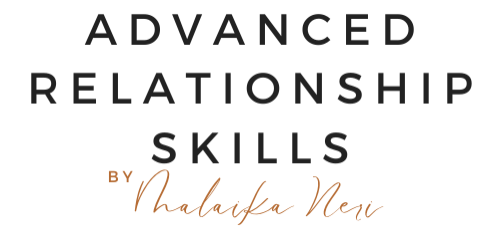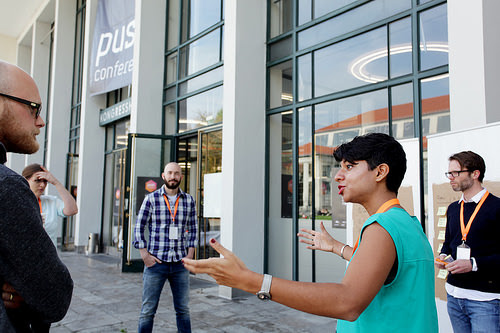My phone rings at 11:05 a.m on Monday morning; I’m at the grocery store, stuffing spinach into a canvas tote bag. The number is not a local one; I answer, and don’t recognise the voice at the other end, amidst the shuffle at the check-out line.
“Malaika, it’s me, I’m sorry I haven’t contacted you in a while, but I need to ask for your advice.”
It’s an acquaintance from German class; we met while struggling through grammar, and sort of bonded because we both work on climate change and sustainability in our day jobs. Last October, he received a plum position in Sri Lanka, and moved there to chair a climate fund.
The line crackles. I’m a little taken aback by his call, and startled that he’s asking me (ME!) for advice. I pick up my groceries, heading home, listening as he lays out the project he’s working on, what he needs help with, his email address.
“Sure, I’ll write you,” I tell him, happy to help. After hanging up, I lean against the kitchen wall, smiling. Somehow, this guy who’s CEO of an investment body, is asking me for advice. The call gives me a boost of confidence; combined with lots of sunshine and the promise of spring, it seems like life cannot get better.
Our friends and family can trigger our own Imposter Syndrome.
Later that afternoon, still on a high, I call my best friend, and tell her the news.
“It’s amazing that he considers me an expert,” I tell her.
“People love getting free advice,” she says in a monotone voice. “You’re only an expert if they’re hiring you.”
My happy bubble bursts, I immediately feel deflated, and I begin to wonder if ten years of working in climate change and sustainability is not enough to make me an expert. Impostor Syndrome sets in; suddenly, I’m just another girl with a couple of degrees and lots of questions.
No one is immune to Impostor Syndrome. Not even Sheryl Sandberg.
Sheryl Sandberg, former COO of Meta, writes about this in her book, Lean In:
“Don’t flaunt your success, or even let people know about your success”, she told herself while in business school.
This morning, warm cups of coffee in our hands, a dear friend – herself a doctor – tells me something similar. “It’s intimidating when you speak so confidently,” she says.
Perhaps I shouldn’t be confident, I think. Perhaps I’m not really an expert, or anything of the sort.
This is the part that no one talks about: the doubt that plagues you late at night, the moments of unsurety that seem to come from nowhere, the seconds after someone has asked you a question when you pause for what feels like æons wondering, am I even qualified to answer?
Ten years of climate change work, sustainability jargon as familiar to me as my morning breakfast, hundreds of LinkedIn connections who work in this sector, job offers left and right, and still, I have these moments of doubt, compounded by loved ones who unknowingly underline the questions rather than buoying me up with that beloved trope, “You can do it.”
Impostor Syndrome is Gender-Fluid
This month, as we celebrate International Women’s Day, it’s easy to think Impostor Syndrome is a primarily female situation. But another friend, a guy with a popular niche blog and thousands of subscribers, tells me he never tells anyone about his website.
These fears generated by Impostor Syndrome plague us as we look for a life partner, convinced that another promotion, more money, a better apartment will make us a more attractive potential partner to the right Soulmate.
How to Handle Impostor Syndrome
Despite the doubts, as Sandberg so wisely writes, in order to grow and challenge ourselves, we have to believe in our own abilities.
We have to underline our own prowess, remind ourselves of our right to succeed, and bear in mind that we’re here to play the long game, great relationships and great careers are not built overnight, and the little things deserve to be celebrated, even if it’s a party of one.
After the phone call with my friend, I felt bad for about two hours, plagued by Impostor Syndrome, before realising, hey, she doesn’t work in climate change and doesn’t know how this sector operates. Plus, I’m happy that they aren’t hiring me because I have enough on my plate right now.
Wherever you are, whatever you’re working on, tune out the noise, set up your emotional boundaries, and charge forward. We are all champions if we choose to be.


